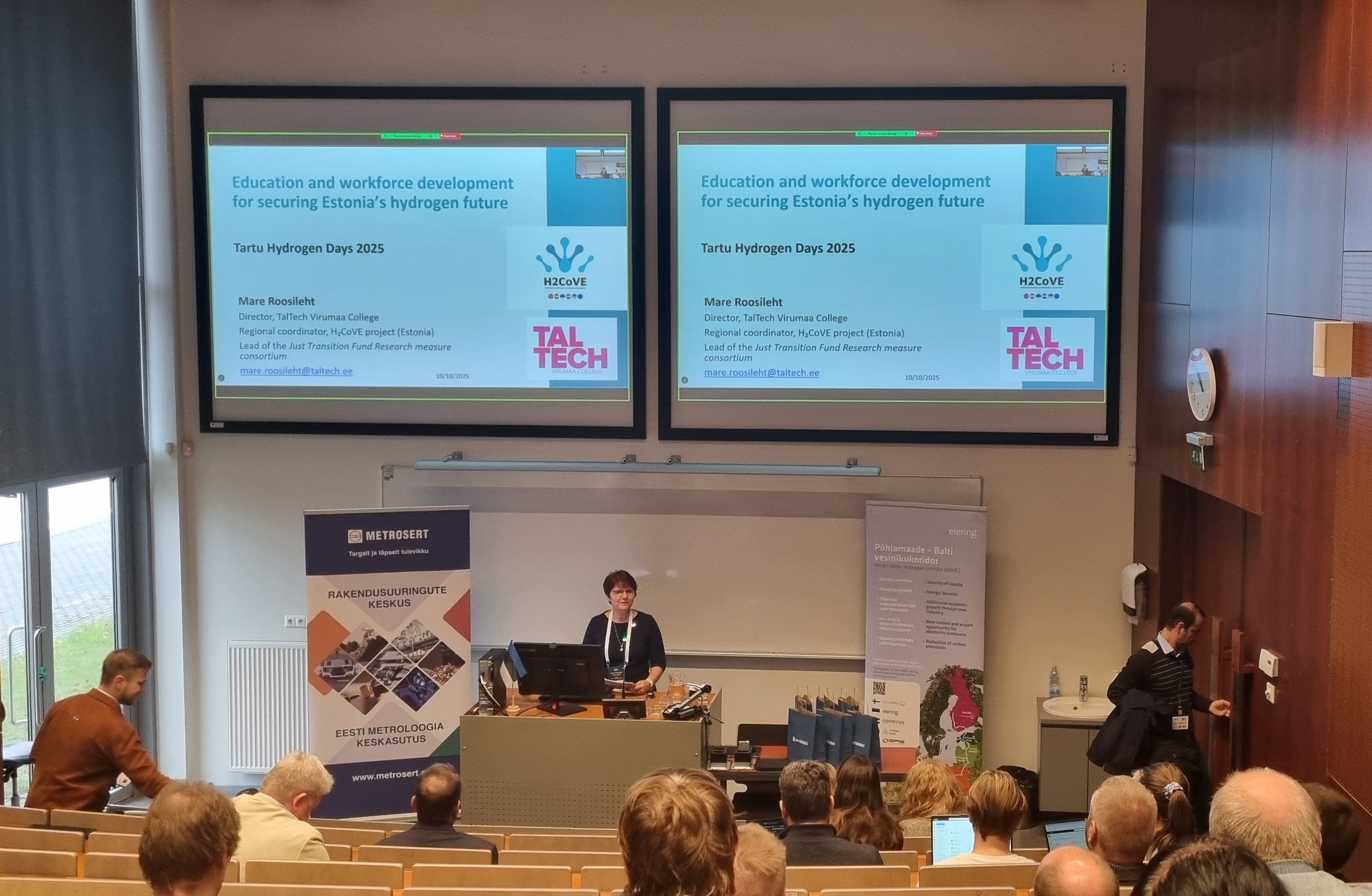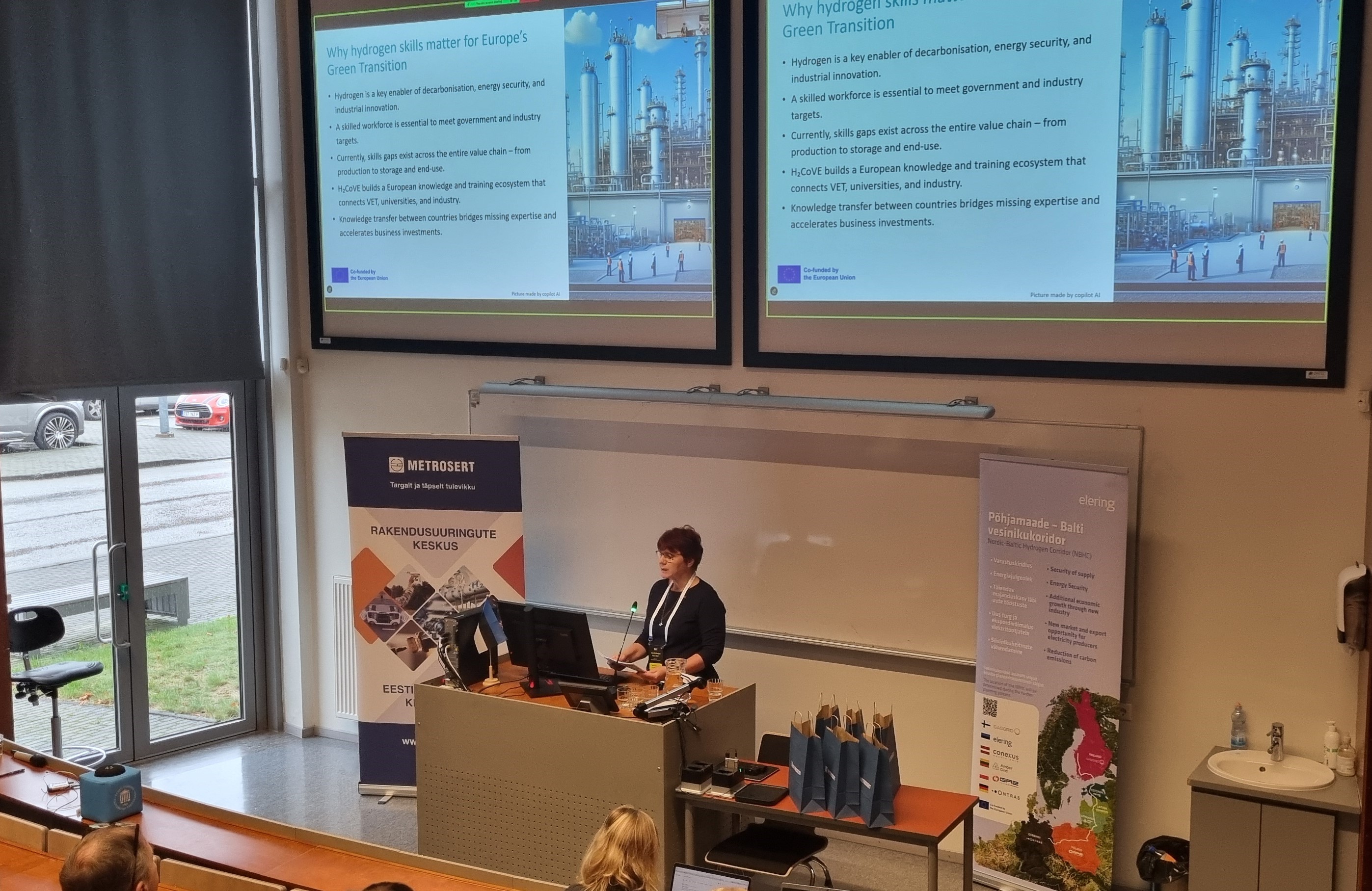At the Tartu Hydrogen Days 2025, Mare Roosileht, Director of TalTech Virumaa College and Estonian regional coordinator of the H2CoVE project, delivered an Ecosystem Talk titled Education and Workforce Development for Securing Estonia's Hydrogen Future. Her presentation provided an overview of Estonia's progress in building hydrogen competence and summarised the results of a national skills and education analysis carried out within the European H2CoVE project.
Education and Skills for Estonia's Hydrogen Future
In her talk, Roosileht introduced the mapping of Estonia's hydrogen ecosystem, which identified around 70 organisations active in renewable energy, hydrogen production, storage, logistics, and research. The mapping, developed in cooperation with Hydrogen Valley Estonia and the Estonian Investment Agency, revealed that Estonia already has a strong scientific and innovation base but still faces a shortage of trained specialists and structured training pathways. The lack of practical education and technician-level programs remains one of the main barriers to sector growth.
The Estonian analysis, conducted under Work Package 3 of H₂CoVE, was based on five research tools: literature review, job market monitoring, industry surveys, interviews, and stakeholder validation workshops. The results clearly showed that while universities offer hydrogen-related theoretical courses and research, hands-on training remains fragmented. Industry representatives emphasised the need for practical training in electrolyser operation and safety, hydrogen storage and logistics, and system integration, as well as policy and market knowledge for decision-makers.
To address these needs, TalTech Virumaa College is establishing a Hydrogen Testing Station and Demonstration Center as part of its Competence Center for Sustainable Chemistry Technologies. The facility connects education, research, and industry, allowing students, teachers, and companies to test hydrogen technologies in real-life conditions. The dual-reactor system developed for the lab operates at up to 1000 °C and can process a variety of feedstocks, including biowaste and plastics, to produce hydrogen and syngas. The center will also support new modular training programs and microcredentials to strengthen Estonia's hydrogen workforce.
Roosileht also compared Estonia's progress with other H₂CoVE partner regions — Norway, the Netherlands, Austria, and Ukraine. While Norway and the Netherlands already have mature hydrogen training frameworks, Estonia and Ukraine are still in the early stages of development. However, all regions face the same challenge: a shortage of skilled professionals and the need for integrated, cross-sectoral hydrogen education systems.
“Estonia's small size is actually our strength,” Roosileht concluded. “It allows us to build a unified national hydrogen training network, share infrastructure, and ensure consistent quality. By investing in people today, we can make Estonia a regional leader in hydrogen skills and innovation.”
Her presentation was part of the Science Day Ecosystem Talks, which focused on building innovation-driven hydrogen ecosystems and their role in strengthening national and regional energy security. The event once again confirmed that education, research, and industry collaboration are essential to ensure a successful hydrogen transition — in Estonia and across Europe.




